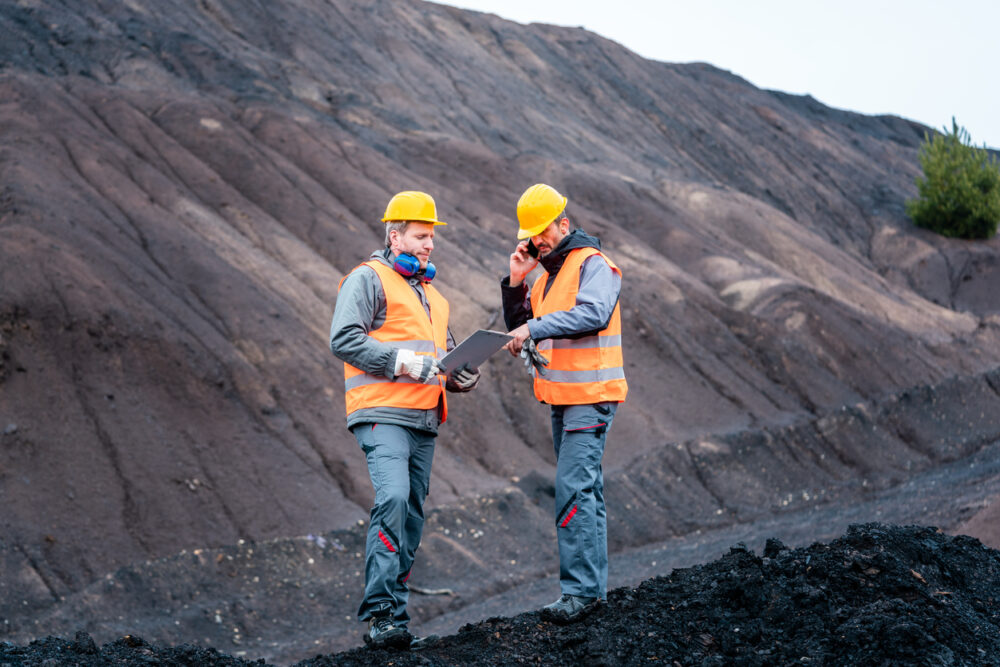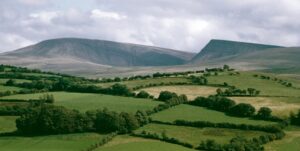How Ecotourism Can Rebuild Wales’ Ex-Mining Regions

Workers standing in open-cast mining operation pit
Coal mining is hard on the environment, no matter what form it takes. Even so, for decades it created a livelihood for tens of thousands of people in Wales and the rest of Britain. The mining industry declined and then disappeared, leaving communities to struggle both socially and economically.
So how can these ex-mining communities recover in a way that benefits the communities and also relieves pressure on the environment? Enter a global interest in ecotourism—tourism that responsibly showcases a region’s natural beauty while supporting conservation and the well-being of local residents. Ecotourism in Wales may be the key to undoing ecological damage while revitalising communities by creating new job opportunities in the travel industry and celebrating the country’s beauty.
Below, we will discuss some of the direct benefits of ecotourism in Wales. We will also take a deep dive into the tourism industry in one county in North-Eastern Wales.
Economic Benefits: Creating New Jobs
Tourists spend money, and there is usually a trickle-down effect that increases the average income in popular destinations. Eco-conscious tourists are sometimes more likely to spend money on quality, environmentally sound options, which in turn can mean lower impact on communities.
If you don’t yet have the skills you need for these new job opportunities, consider volunteering or doing an internship with environmentally conscious tourist agencies, hotels, or conservation organizations to gain some hands-on experience.
Later, with these experiences under your belt, you can employ an online builder like CV Whizz to highlight your skills in a CV, as well as update your LinkedIn or other online profiles with your new skills and experiences.
Social Benefits: Quality of Life
When more jobs are available, fewer people suffer the effects of poverty, such as hunger or homelessness. This alleviates pressure on social support services, and funds can be used to benefit the community in other ways.
Beyond providing for physical needs, ecotourism also provides access to new and different opportunities and experiences. Supporting ecotourism can help strengthen community bonds, providing a sense of identity and a basis for pride in one’s community. This is especially true when historical and cultural assets are a part of the draw for tourists.
Often, ecotourists are interested in eating locally, such as with farm-to-table experiences, shopping at farmer’s or local artisan markets, or visiting local producers to learn about their processes. Developing the supply chain has the latent function of making local, sustainably grown healthy foods more readily available to local residents.
Environmental Benefits
When unspoiled natural terrain is at the heart of a region’s “bread and butter,” individuals are more likely to care about and invest in protecting it. This is true even of those individuals and businesses who would not appreciate lands and wildlife on its own merit.
Case Study: Denbighshire
The county of Denbighshire is known for its stunning countryside, bustling market towns, seaside resorts, and historic locations dating back centuries.
Denbighshire is also home to the Denbighshire Coalfield, which was worked extensively during the 1800s. At its peak, the 38 collieries produced 2.6 million tons of coal and employed 12,000 individuals. The coalfield’s last deep mine closed in 1986.
How is ecotourism affecting this former coal mining region? In recent decades, tourism has replaced many of the lost coal mining jobs. In 2022, for example, around 6 million people visited the county, bringing in £628 million in revenue for local businesses. Sustainable tourism was a specific topic of interest at the Denbighshire Tourism Forum this autumn.
What does ecotourism look like in Denbighshire? It takes many forms. Many visitors come for the scenic vistas of mountains, forests, castles, abbeys, moors, valleys, and coastlines. They may choose to see these areas by train, car, on foot, or with guided tours. Biking, kayaking, and birdwatching are also popular. Footpaths are well maintained, and equipment hire is available from outdoor centres.
Many companies have opened to cater specifically to the needs and wants of tourists. Mynydd Sleddog Adventures is the first and only sled dog excursion in Wales. Visitors can meet the dog teams, hike with them, and even learn to drive a dog sledge. Unlike similar offerings around the world, there doesn’t have to be snow on the ground for the dogs to run. Instead of wooden sledges, wheeled carts that resemble standing bicycles are used.
Other popular ecotourism attractions include the Clwydian Range, Dee Valley Area of Outstanding Natural Beauty, Denbighshire Coast, and Alyn and Dee Rivers Special Protection Area. The Welsh Mountain Zoo in Colwyn Bay focuses on native wildlife. Visitors who wish to delve into Denbigshire’s mining history can visit the National Slate Museum in Llanberis, at the site of a former slate mine.
Denbighshire is poised to increase its tourism potential by further promoting outdoor activities, supporting ecotourism businesses, and further developing educational and interpretive initiatives such as visitor centres. Surrounding counties are and can continue to follow suit.
Key Takeaways
Ecotourism can help former mining areas develop economically, create a better quality of life for residents, and preserve natural resources.
Denbighshire is a prime example of this in Wales. Former mines are now museums, and numerous businesses have opened to provide accommodations and unique outdoor experiences. Wildlife and natural areas are protected, and a former mine site has even been transformed into a museum.
Welsh communities have survived many a crisis, and learning new skills which celebrate a unique heritage and stunning environment can only make them stronger still.



